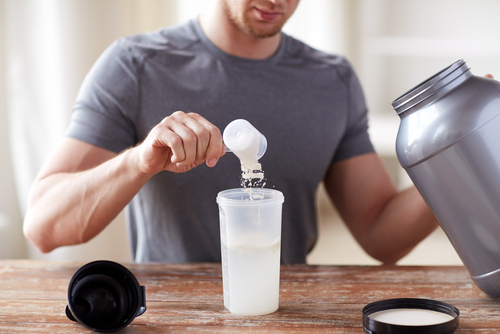Creatine…
In many competitive sports, athletes supplement creatine. Creatine is made up of three amino acids: arginine, glycine and methionine. It is also produced naturally by the body in the kidneys, liver, and pancreas.
Creatine can also be obtained from food (particularly red meat). Which is why it may be beneficial for individuals on plant-based diets with an intense workout regiment to consider using a creatine supplement.
Supplementing creatine means more potential ATP, which translates into improved performance on short-duration, high-intensity tasks. Creatine is one of the top-selling supplements among athletes because it has been shown to:
- Promote muscle regeneration and recovery after exercise
- Improve energy during intensive exercise
- Enhances strength
Creatine helps to quickly replace the phosphate needed to reload cells and allow the muscles to work harder. In turn as your muscle is able to work harder, the extra activity also results in more muscle growth as well as increased muscle size. Water concentration increases in the muscles, which is why it is important to drink plenty of water when using creatine supplements.
You may get that extra edge in the following activities:
- Weight Training
- Sprinting/ Running
- Cycling
- High Intensity Interval training (HIIT)
Creatine will help a sprint but not a marathon.
- Dissolve the creatine in a warm beverage. (green tea)
- Take your creatine before and/or after workout session
- Take a break from creatine supplementation after using for 12-16 weeks


